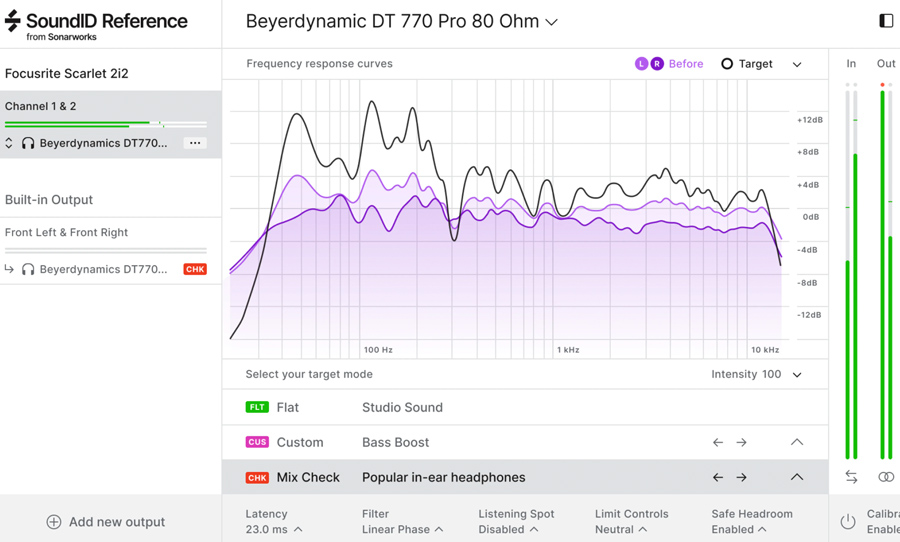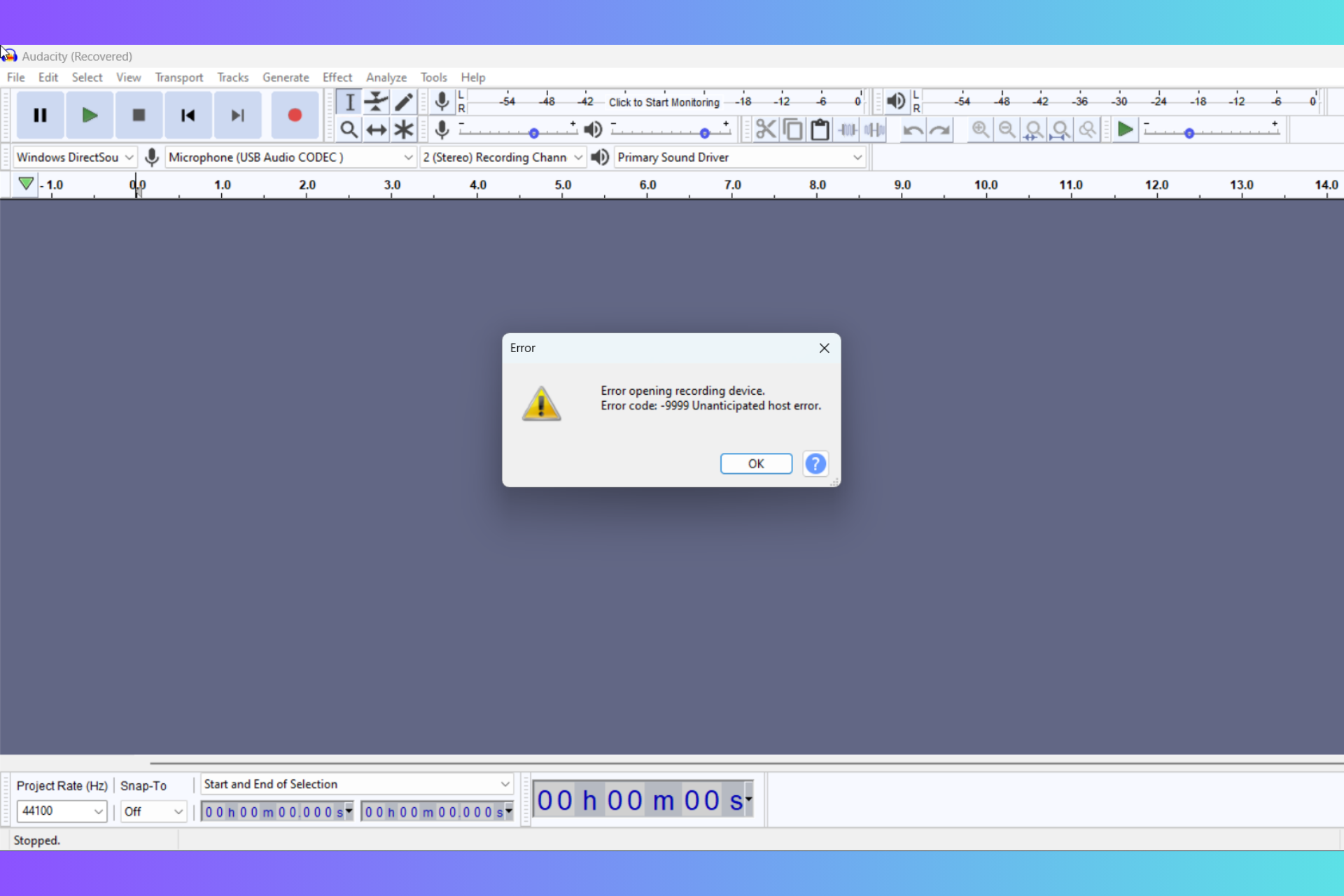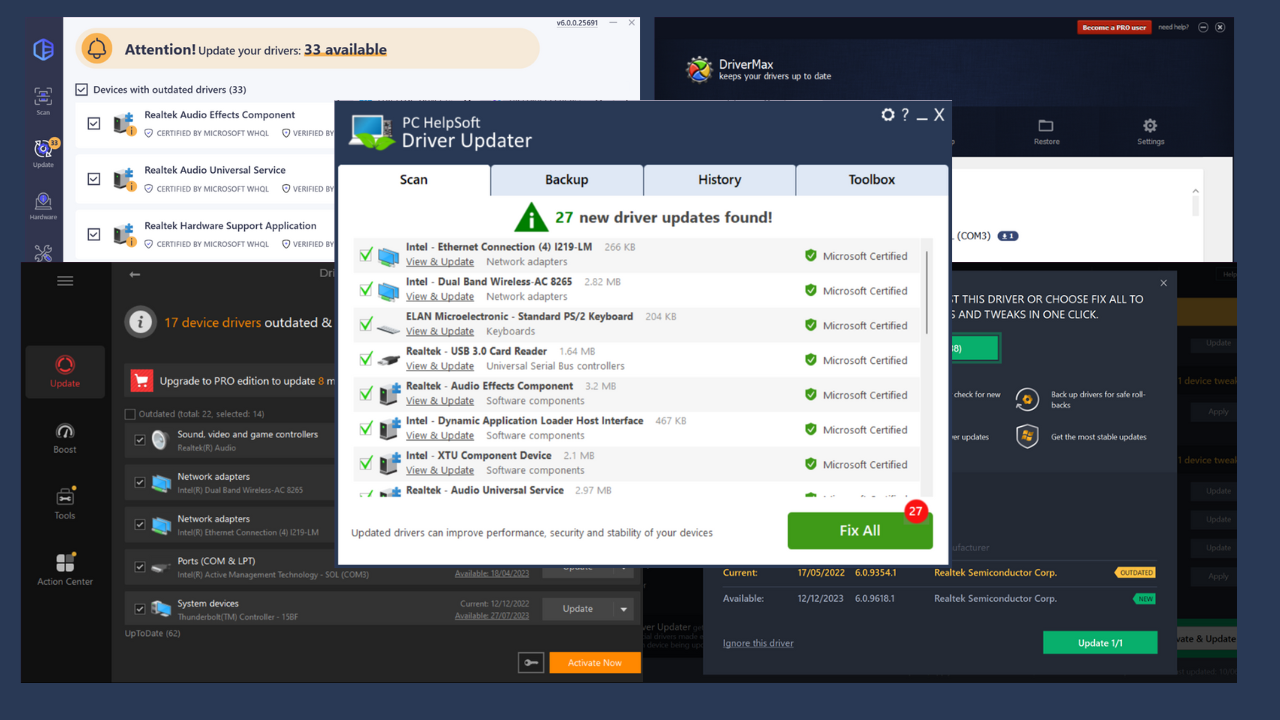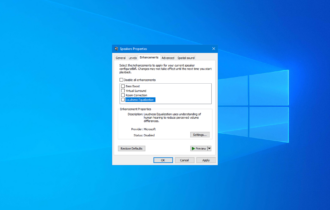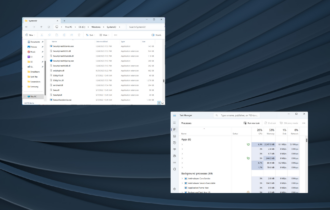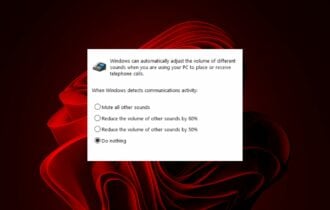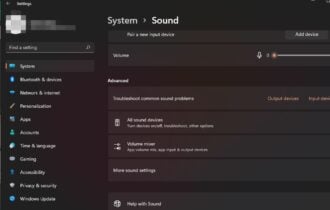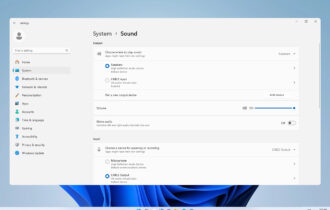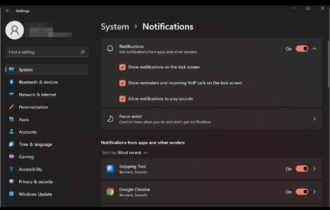3 Best Sound & Audio Calibration Software for Windows
Sound calibration software ensure perfect studio sound mixing
5 min. read
Updated on
Read our disclosure page to find out how can you help Windows Report sustain the editorial team Read more
Key notes
- For perfectly calibrated audio, you need to mix your songs using sound calibration software.
- Even the priciest sound monitors have an audio coloring that interferes with your experience.
- For speaker calibration, you will need to use a dedicated measurement microphone.
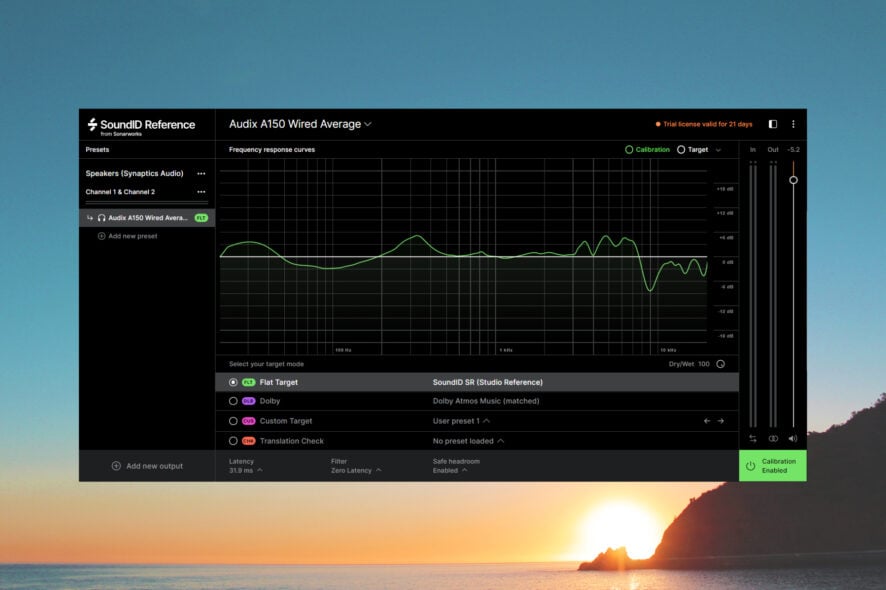
You’ve just bought the best speakers and connected them to your Windows PC? Now, you need a sound calibration tool to get the best quality sound.
These apps not only address sound distortions but they help you optimize the sound for your environment.
Why do I need sound calibration software?
Every room or environment influences the frequency response of the sounds you’re listening to.
In fact, after the sound exists in your speakers, it bounces between all objects and walls until it gets absorbed.
That is why, in a completely empty room, you will experience a hall effect and echoes, while in an overpacked environment, the sound will be heard almost muffled.
Moreover, when the sounds from two opposite speakers meet, they will create peaks or dips, if they are in phase or out of phase.
Long story short, the tools below will help you tweak your sound for a reference studio audio quality and achieve a balance between the left and right channels
What are the best sound calibration apps?
SoundID Reference – Best sound calibration solution
If you want to achieve perfect studio sound for your musical creations, Sonarworks’s SoundID Reference is the ultimate tool for sound calibration.
Apart from adapting the sound for any of your headphones or speakers, this software is able to adjust the sound coloration to adapt to all devices.
Here’s how it works: All the speakers have their own specific sound or sound coloration, as the specialists call it.
So, when you’re mixing a song, it will be influenced by those properties. SoundID Reference has a database of over 400 types of headphones and speakers and their sound coloration patterns.
After you choose your device from a list, the tool will eliminate all those frequency patterns to get the perfect studio reference sound.
That means every mix you make will translate the same for all the listening devices of the target audience.
For headphones, you will just need to select the pair from the available list, but things are a bit more complicated for speakers.
To calibrate the sound for them, you will need the SoundID Reference measurement mic, which is individually calibrated for this job.
The software also allows you to adjust the target curve in real time or perform simulations for certain types of headphones or speakers.
SoundID Reference has a free trial complete version that can be tested for 21 days so feel free to use it.
Let’s review some of its best features:
- Sound calibration for over 400 types of headphones and speakers
- Get accurate studio reference sound for your mixes
- DAW plugin and Systemwide Calibration
- Customize your target sound using a parametric equalizer
- Check your mix in different listening environments

SoundID Reference
Calibrate your mixes for the perfect studio reference sound with a large database of devices.ARC System 3 – Great for speaker calibration
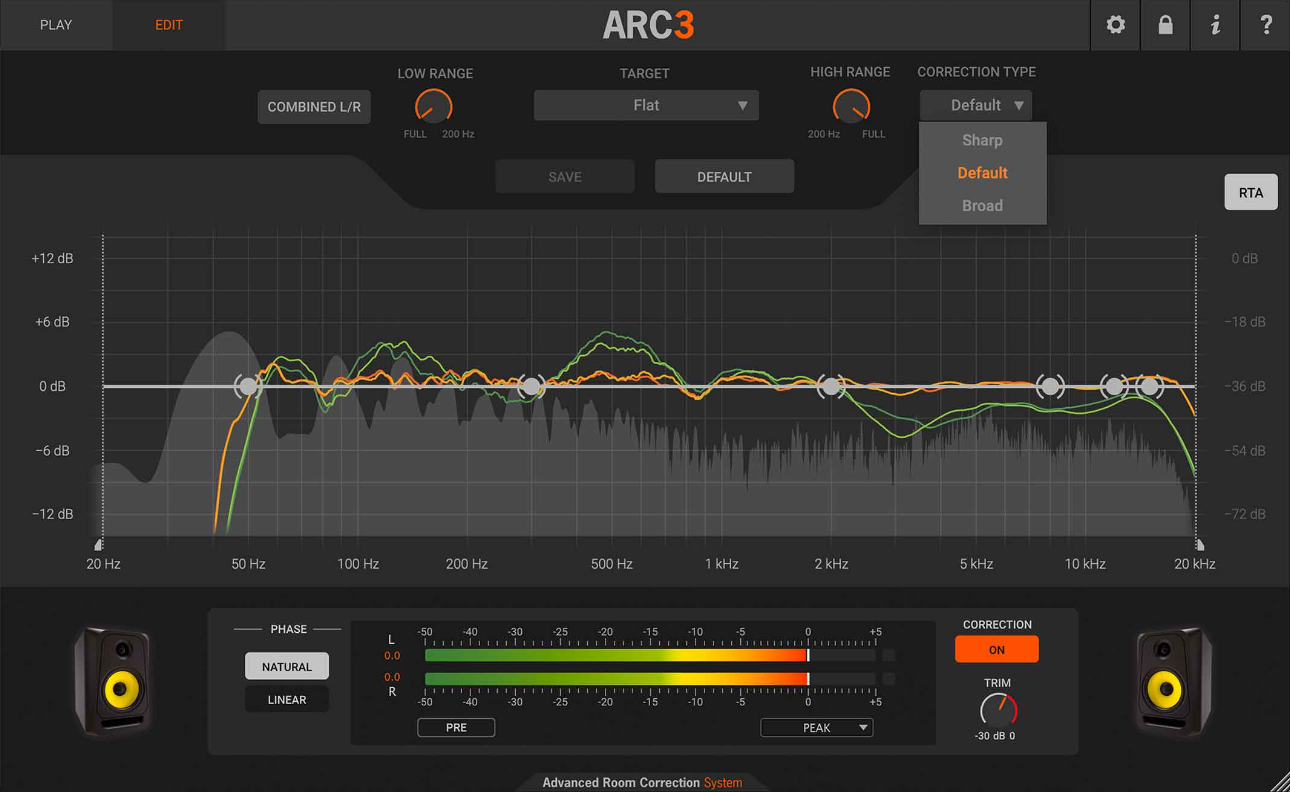
Unlike SoundID Reference, IK Multimedia’s ARC System 3 comes only as a DAW plugin and may be used for speakers and room calibration.
However, you also need a measurement microphone to perform the actual calibration. And with the latest iteration of the software, it now supports third-party devices for this job.
ARC System 3 applies the same system to null out the sound coloration of your speakers, but it doesn’t have a device database to choose from.
The tool measures the sound of your room within a guided step-by-step process and then generates a correction profile.
That is loaded into the ARC plug-in for your DAW and creates the needed reference studio sound.
Take a look at its key features below:
- Measurement mic, room analysis software, and correction plug-in
- Improves frequency balance and stereo imaging in any room
- Work faster and create better mixes without expensive room treatment
- Virtual monitoring emulates the sound of common listening devices
TRACT System Calibration – Great sound plugin
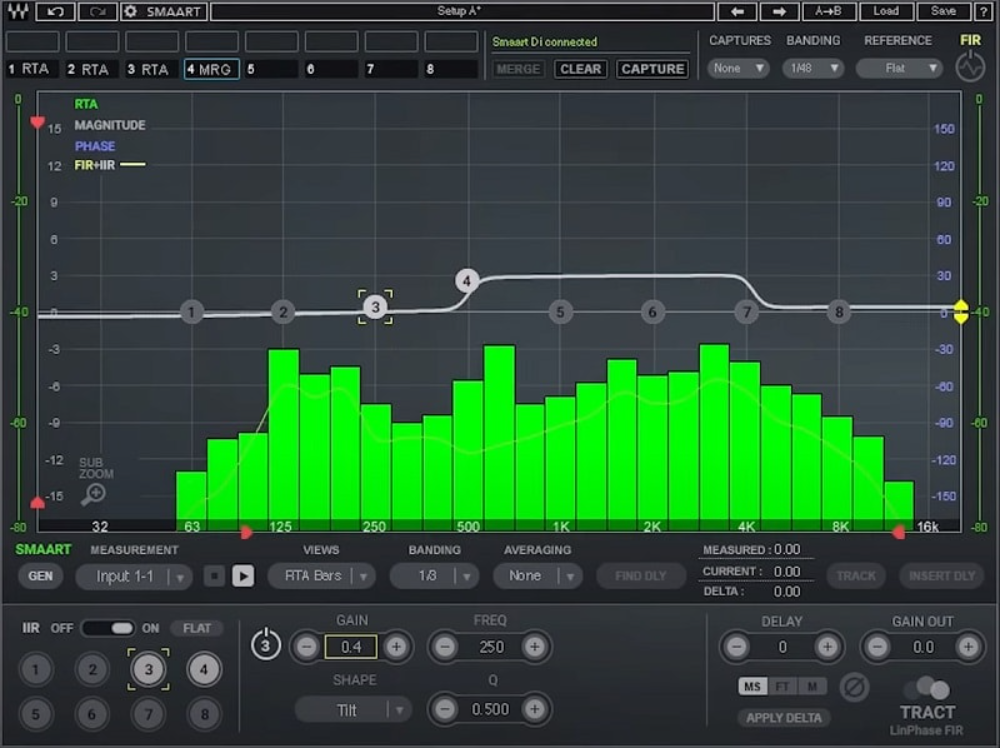
Wave’s TRACT System Calibration is also a DAW plugin dedicated to Smaart, the standard audio analysis software from Rational Acoustics.
Just like the tools above, it is used to auto-correct EQ issues and time-align any sound system.
TRACT calculates a corrective FIR EQ curve and makes time alignment adjustments by using data from Smaart v8 or Di v2.
The plugin takes 8 measurement snapshots of your system and merges them up to use it as a reference for your EQ corrections.
Once the FIR EQ is calculated, you can change the reference curve, or add up to 8 bands of IIR EQ filters.
TRACT includes a minimal-phase FIR component, which works at very low latency and with low phase distortion, as well as a linear-phase FIR component.
The fun part is that you can use it in a live setting with a mixing console or within any major DAW.
Check out its best features:
- Built-in 8-band FIR EQ
- Uses data from Smaart v8 or Di v2
- 8 bands of IIR EQ filters
- Can be used in live settings with any mixing console
- Calculates delay for aligning audio systems
This concludes our list of the best sound calibration software and we hope that you found the right one for your needs.
In the same respect, you might be interested in our selection of the best speaker calibration software for Windows.
Have you used any of the tools highlighted above? If so, tell us about your experience in the comments section below.

